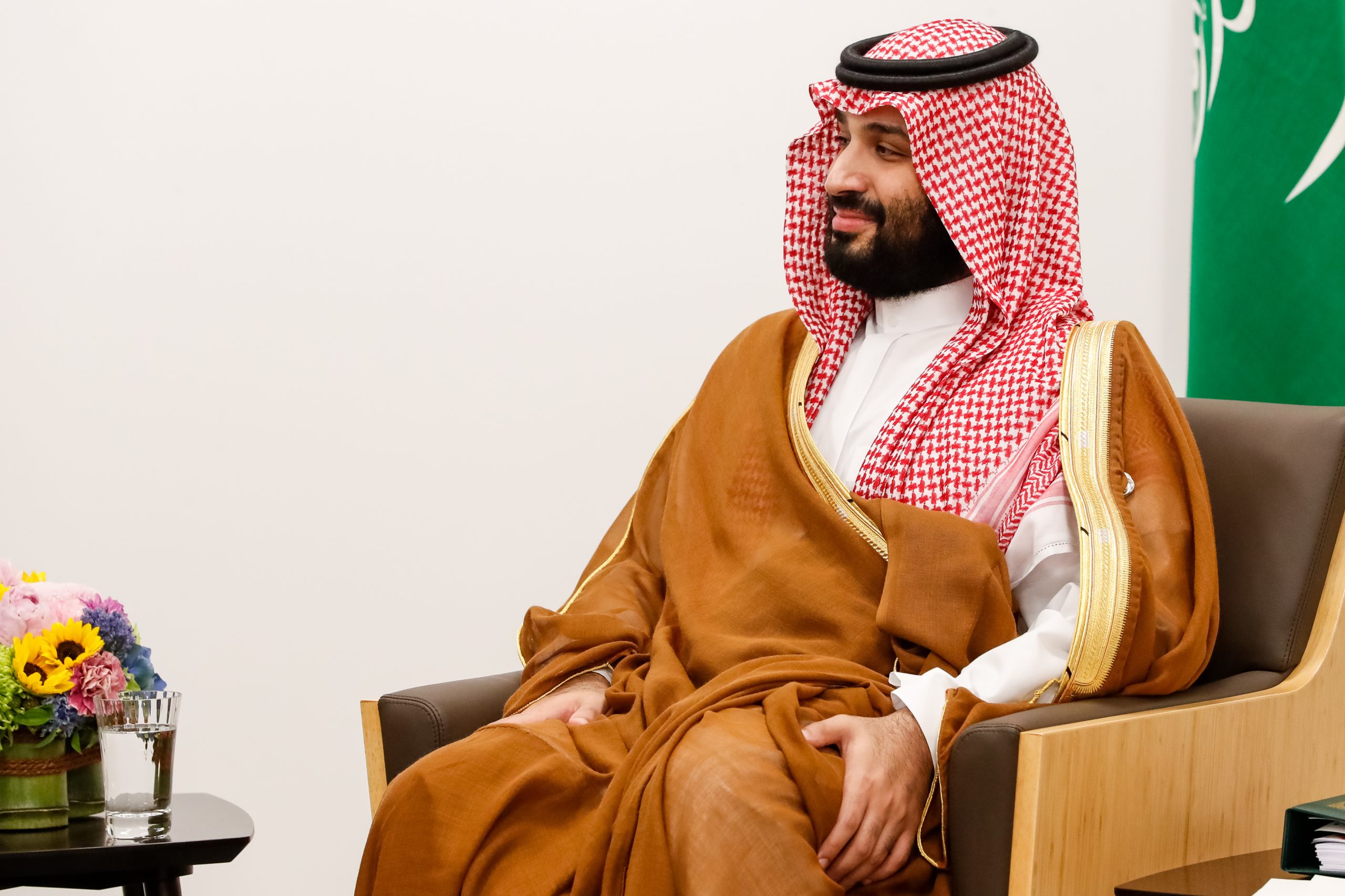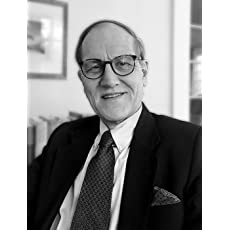
- 26 Nov 2020
[Book Launch] Vision or Mirage: Saudi Arabia at the Crossroads
Abstract
Saudi Arabia remains to many an enigma despite significant social and economic reforms enacted since King Salman ascended to the throne in 2015. The crackdown on activists as well as the killing of journalist Jamal Khashoggi, the subjugation of powerful members of the ruling family and the business community, and the war in Yemen have tarnished its relationships in the West.
Providing a unique and granular analysis of the inner workings of the kingdom, Mr David Rundell, who served a total of 15 years as a US foreign service officer in Saudi Arabia, illustrates King Salman’s long-standing focus on combatting corruption that is at the core of Saudi reforms in his recently published book, Vision or Mirage: Saudi Arabia at the Crossroads. The former diplomat also delves into the governing of King Salman’s governing of the Saudi capital, Riyadh, for nearly five decades before his ascension to the throne.
Anti-corruption has played a dramatic role since Salman became king in solidifying and concentrating power in the kingdom and breaking with a past of slow and gradual change. Instead, King Salman introduced rapid reforms with little consultation. To do so, he picked his son, Mohammed bin Salman, as crown prince because he saw in him a bulldozer with the needed ambition, drive, and ruthlessness to undermine the traditional pillars of support of the Saudi system like elite cohesion and the maintenance of rival armed forces.
In doing so, Mr Rundell argues that King Salman may have made Saudi Arabia less stable by turning it into a country in which absolute political and military power have been concentrated in the hands of one man, ruling over a young population that aspires for greater transparency and accountability.
This public talk will be conducted online via Zoom on 26 November 2020 (Thursday), from 4.00pm to 5.30pm (SGT). All are welcome to participate. An e-invite will be sent to you closer to the event date.
This event is free, however, registration is compulsory.
Image caption: Saudi Arabia’s Crown Prince Mohammed bin Salman attending the G20 summit in Osaka, Japan. Photo: Palácio do Planalto / Flickr
Listen to the full event here:
Watch the full event here:
Read the Summary of Event Proceedings:
By Ilyas Salim
Research Assistant, Middle East Institute, National University of Singapore
The inner workings of Saudi Arabia, particularly how its reform drive will pan out, remain bewildering and paradoxical to many observers. A new book by David Rundell, a United States diplomat with 15 years’ experience in the Kingdom, attempts to make sense of the sweeping changes being undertaken in the country. Vision or Mirage: Saudi Arabia at the Crossroads, delves into the back story of how Saudi Arabia has managed to remain stable for so long, and whether it will continue to do so in a time of dizzying change.
At a virtual book launch event organised by the Middle East Institute (MEI) on 26 November lasting close to two hours, Mr Rundell sketched out a key theme of his book: How the reforms are affecting the country’s stability, and why he believes that they are a positive move for the country, despite spotty success thus far.
In his introduction, Mr Rundell said Kingdom has been far more stable than most commentators have given it credit for. He attributes the country’s durability to four pillars: The historical legitimacy of royal family, a stable leadership succession process, the establishment of a coalition of stakeholders entwined symbiotically with the monarchy, and its consistent ability to provide competent governance.
Turning to the future of the reform movement, Mr Rundell noted that the tenor of the reforms had been expected, to an extent, given King Salman’s policies regarding the monarchy and corruption when he was governor of Riyadh. Driven by pragmatism rather than liberal idealism, the King recognised early that cutting back on royal excess was necessary for the monarchy’s own survival, as Saudi citizens would not forever accept the extravagant benefits enjoyed by thousands of princes. He was also an anti-corruption crusader, and launched high-profile crackdowns which helped send a strong signal to the public that corrupt political and business practices were frowned upon.
On the impact of the reforms, Mr Rundell argued that while Vision 2030 may not achieve all its goals within the next five to 10 years — especially given the economic disruptions caused by the Covid-19 pandemic — it had already effected tangible social and fiscal changes. For instance, there has been not only a dismantling of the well-known ban on female drivers, but also an easing of the guardianship regulations that required women to have a male guardian’s written permission for a wide range of activities such as the establishment of a bank account. But while these changes have been supported by a majority of the population, there are some quarters that have been alienated by them, including the religious establishment and some members of the business community and royal family.
He added that while the economic and social aspects of the reforms have been deemed a step in the right direction by many experts, the political moves remain something of a mixed bag. While King Salman has managed to implement anti-corruption measures and downsize the monarchy without touching off a a potentially-destabilising royal family feud – an achievement in its own right – this has resulted in a centralisation of power. This, he said, had sidelined consensus-driven policymaking. Worse, the rising number of crackdowns on dissent has edged the kingdom closer towards being an authoritarian police-state.
In the long term, Mr Rundell said, the Kingdom was unlikely to turn its back on fiscal reforms and austerity measures, despite the pandemic. Instead, its focus would be on keeping national debt to 30 per cent of GDP, while subsidy cuts would be upheld in line with Vision 2030’s goal of bringing utilities and petrochemical feedstock prices more in line with the global market. While the veteran diplomat acknowledged Saudi efforts to create jobs and focus on areas of comparative advantage, he said that the Kingdom has continued to struggle to develop a skilled workforce, or encourage re-skilling. Instead, it has moved to increase local labour participation in the low-skill tourism, mining and retail sectors. As a result, the development of human capital remains an elusive target for the kingdom.
Nevertheless, Mr Rundell said, the success of the reforms was crucial to Saudi Arabia. If Crown Prince Muhammad bin Salman failed to deliver, political instability would result, and the most direct challenge to the monarchy would come from an Islamist faction, given that they represented the most organised political resistance to the regime and already enjoyed considerable appeal in some sectors of Saudi society. If successful in their challenge, the impact of the Kingdom and the region would be catastrophic.
The Geopolitical Landscape in the Middle East
Taking questions on the future geopolitical landscape of the Middle East, Mr Rundell emphasised, as many other experts have done so in conversations with MEI over the last year, that the US would continue to maintain a significant presence in the region. Citing an example commonly used by naysayers who insist that an American withdrawal is in the offing – the purported lack of a US response to the 2019 drone attacks on Saudi oil facilities in Abqaiq – he said this perception was misleading. Indeed, he said, the US responded in powerful fashion, by killing the head of the Islamic Revolutionary Guard Corps, Major-General Qassem Soleimani, in January this year.
But, he added, the US was no longer the hegemon it was in the 1990s, and is more in need of allies than ever if it wants to secure its interests in the region. Saudi Arabia, Mr Rundell said, can play a big part in this effort: It has been a consistent American ally in contributing to counter-terrorism efforts, stabilising energy markets, promoting the Arab-Israeli peace process, and generally being a status quo power upholding security within the region. The incoming Biden Administration would thus be wise to engage rather than alienate the Kingdom, he said, given that the costs of maintaining security in the region would force successive US governments to push for burden-sharing among allies.
On the Gulf crisis, Mr Rundell said that the divide between Qatar and other Gulf states would be difficult to resolve as it was a complicated issue with fundamental generational, territorial, and ideological factors. While it is within US interests — although not a vital one — to assist in resolving the crisis by finding a face-saving solution for all parties involved, a more likely outcome would be a Saudi decision to end the blockade, given that the political and economic costs of sidelining Qatar outweighed the benefits.
Finally, on the regional balance of power, Mr Rundell agreed that Saudi Arabia and Israel would prefer to maintain pressure on Iran, and both states are alarmed by the prospect of a US re-entry into the Joint Comprehensive Plan of Action (JCPOA). Both countries can influence US policy on the matter, he said: Saudi Arabia has leverage because it is a vital US partner in areas such as counter-terrorism, while the Israeli lobby in Washington is a powerful force. But, he added, normalisation between Riyadh and Tel Aviv is not imminent, and will take place only after King Salman, who has a strong emotional attachment to the Palestinian issue, passes the torch to his son.
About the Speakers

Former Chief of Mission
American Embassy in Riyadh
David Rundell studied Arabic at Oxford and served as an American diplomat for thirty years in Washington, Bahrain, Saudi Arabia, Syria, Tunisia and the United Arab Emirates. Widely regarded as one America’s leading experts on Saudi Arabia, he spent fifteen years in the country where he worked at the Embassy in Riyadh as well as the Consulates in Jeddah and Dhahran. His assignments in Saudi Arabia included the Chief of Mission, Charge d’Affaires, Deputy Chief of Mission, Political Counselor, Economic Counselor, Commercial Counselor, and Commercial Attaché. He has numerous awards for his analytical reporting and participated in Operation Desert Storm, Saudi accession to the World Trade Organization and the defeat of Al Qaida’s terror campaign. After retiring from the Foreign Service he spent three years at the Boston-based consultancy Monitor Group before joining Arabia Analytica as a partner. He lives in Dubai and travels regularly to Saudi Arabia.




